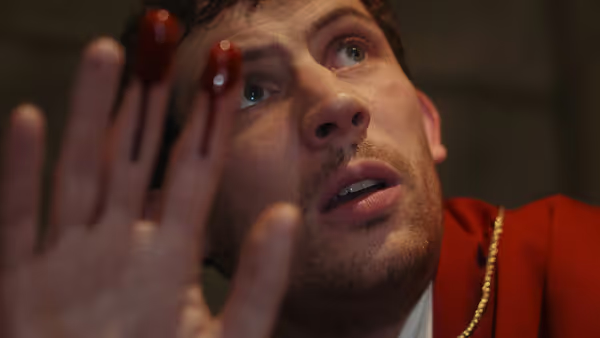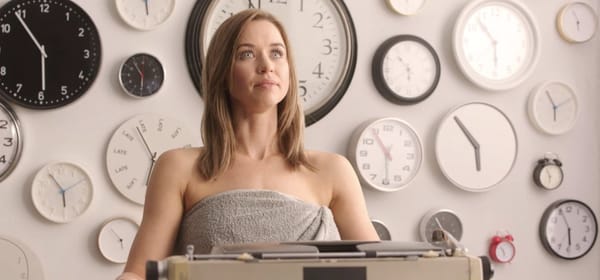“Slow”: Asexuality up close


‘Slow’ has made it from last year’s Sundance, by way of Lithuania’s Academy Award International Feature Film entry, all the way to me at this year’s BFI Flare. It is the first film I’ve ever encountered to discuss, depict, and fully paint out the very bare-bones curiosities, to outsiders, of how asexuality works - how it presents in one character’s life and behavior, and within the intimate relationship he has with a partner not on the Asexual Spectrum.
It does put into stark relief how we are raised, as a default, to see sexuality as an unspoken, intrinsic worthiness meter. Because we rarely discuss sex, we rarely discuss the lack of it, or even what personas and responses it ends up creating within us.
Elena has a very, very hard time coming to terms with Dovydas’ place on the asexuality spectrum - but only ever concerning what it means about her, or the security of her place in his life. She has to be told, eventually, how much he feels his own position in the relationship, his capacity to be with her, keeps being called into question by her subconscious, non-malicious behavior and assumptions. He holds a lot of unexpressed anguish throughout, which I don’t feel every gets resolved, but that’s not necessary for it to still be effective.
Though she ventures out at points to re-engage her sense of her sexuality, there is no more joy to be found in that life during the main body of the film, as she straddles a void we rarely approach consciously - the one where romantic love and erotic love diverge. She is in a relationship where she carries both, and her partner only needs to carry one to be fulfilled.
I did find the focus on Elena as the way into the story to be a missed opportunity to explore representing an asexual character in the first person, but as it’s a film that feels more like an introduction or explanation to others — an outside-in view — this choice makes sense.
Visually, Kavtaradzė doesn’t shy away from her intense closeups - often purposefully making the geography of the scene a little vague, to carry your eye along with the motion. The camera remains active, light, and close, much like the dancing that Elena brings to the story. The dance scenes are specifically beautiful to watch, as are the vignettes of Dovydas’ interpretation. He is the interpreter in more ways than one. This is a film of hands and bodies, and it certainly shows more than it tells.
It’s worth catching, or streaming, if you can - especially if the asexual spectrum is a topic you rarely approach or even think about. To learn, yes, but more to start asking yourself the questions rarely asked, to confront the unspoken in our sexualities - that there are aspects of our lives we’ve tied to sex for no good reason, and because we never discuss it, we never truly understand those aspects.



